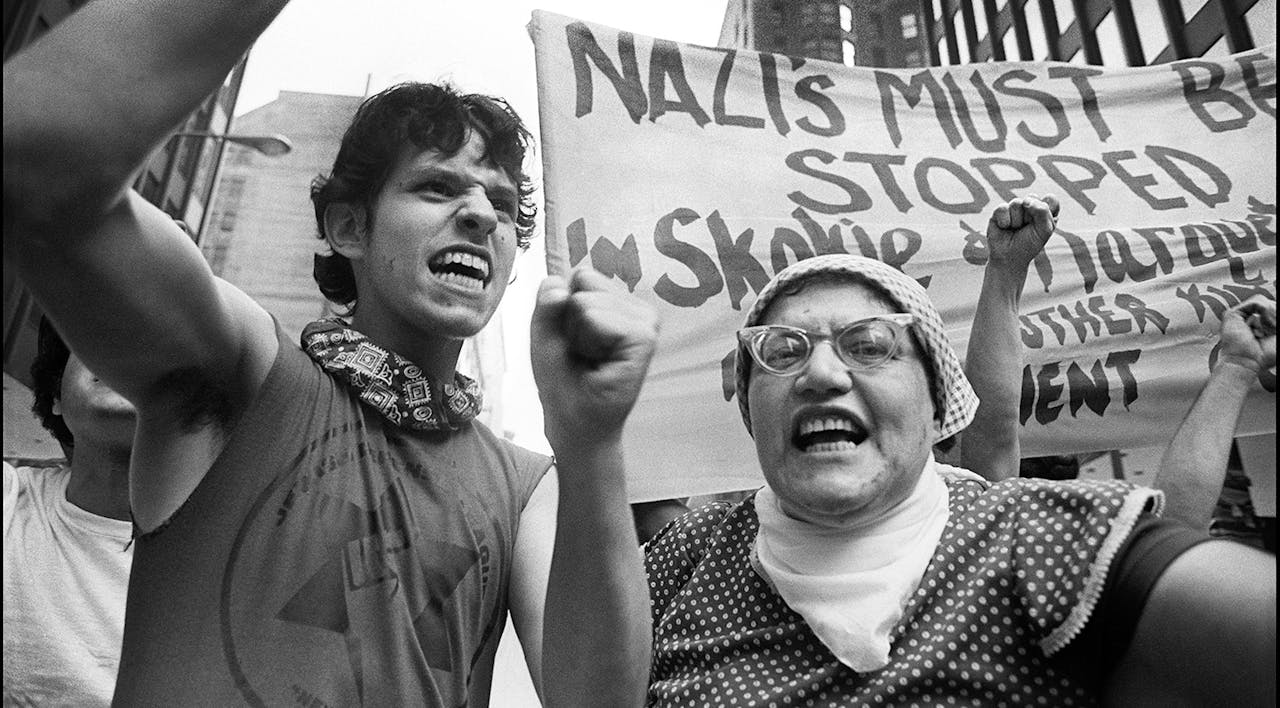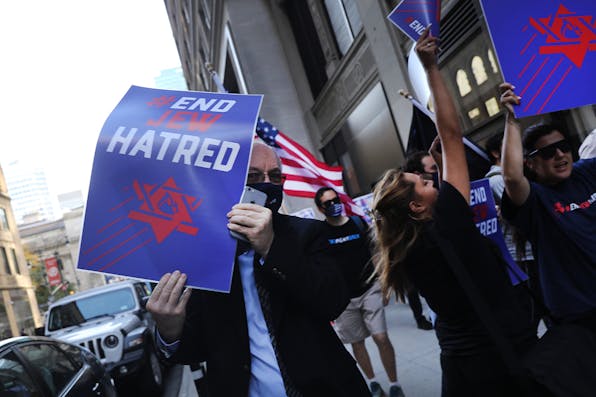
April 2021
Skokie Then and Now
In 1977, a Jewish director of the ACLU famously agreed to defend the rights of neo-Nazis in Illinois to demonstrate in public. Would the same thing happen today—and should it?
On Wednesday, April 27, 1977, the Illinois affiliate of the American Civil Liberties Union received an unsolicited call from a man named Frank Collin. Deceptively unassuming in voice and manner, Collin was president of the National Socialist Party of America, a successor to the National Socialist White People’s Party led by the infamous George Lincoln Rockwell. On the phone with an ACLU staff attorney named David Goldberger, Collin complained that his group had been served with a lawsuit to prevent its planned demonstration in the Chicago suburb of Skokie. He asked the ACLU’s Illinois office to represent him and his band of neo-Nazis in court and thereby oppose what he regarded as infringement of their First Amendment rights to freedom of speech and assembly.
Collin’s request, and the ACLU’s decision to accept the case, provoked months of litigation and created a controversy still taught to American schoolchildren today. For many American Jews, the ACLU’s decision to represent the neo-Nazis was an act of betrayal. Collin had chosen Skokie as a location for the demonstration specifically because it had a large Jewish population, including many Holocaust survivors, that he wanted to intimidate. Under these circumstances, the Jewish Goldberger’s appearance on behalf of Collin seemed a grotesque sacrifice of communal loyalty to abstract principle. (The grotesque became utterly farcical when it became public that Collin’s father was not merely a German-born Jew but also a survivor of Dachau).
Despite the somewhat bizarre circumstances of the controversy, the legal question was sufficiently important to interest the Supreme Court. In a 5-4 ruling, the majority reversed lower-court decisions that had upheld restrictions on the neo-Nazi march. Strikingly, the Court proclaimed that displaying the swastika was a form of expression protected by the Constitution, despite the distress and fear it was likely to arouse, particularly among Holocaust survivors. Although the term was not then in use, the decision can be read as extending constitutional protection to what’s now called hate speech.
